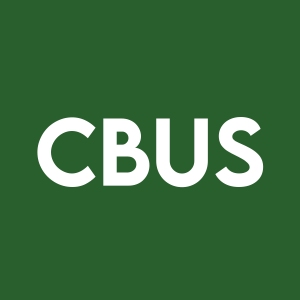Cibus Expands its Intellectual Property Coverage for Plant Gene Editing and Traits
Rhea-AI Summary
Cibus (Nasdaq: CBUS), a leading agricultural technology company, announced an expansion of its intellectual property (IP), securing additional patents for 10 plant trait and gene editing families over the past six months. This enhancement strengthens its IP portfolio in key areas like Pod Shatter Reduction (PSR), Herbicide Tolerances (HTs), High Fiber Wheat, and Improved Quality Alfalfa, covering regions including Europe, Asia, Latin America, Canada, and the US. The patents leverage Cibus' Rapid Trait Development System (RTDS®), including technologies like Gene Repair Oligonucleotides (GRON) and Transcription activator-like effector nuclease (TALEN). These advancements highlight Cibus’ capabilities in developing complex traits across multiple crops, reinforcing its strategic growth and product development efforts.
Positive
- Expanded intellectual property coverage for 10 plant trait and gene editing families.
- Strengthened IP portfolio in Pod Shatter Reduction, Herbicide Tolerances, High Fiber Wheat, and Improved Quality Alfalfa.
- Secured patents in Europe, Asia, Latin America, Canada, and the US.
- Utilization of advanced technologies like RTDS®, GRON, and TALEN.
- Recognition of patent offices, validating Cibus' capabilities in gene editing.
Negative
- None.
News Market Reaction 1 Alert
On the day this news was published, CBUS gained 0.67%, reflecting a mild positive market reaction.
Data tracked by StockTitan Argus on the day of publication.
Additional patents issued for 10 plant trait and editing families in the past two quarters.
Strengthens Cibus’ intellectual property portfolio in its Pod Shatter Reduction (PSR), Herbicide Tolerances (HTs), High Fiber Wheat and Improved Quality Alfalfa trait families.
SAN DIEGO, June 26, 2024 (GLOBE NEWSWIRE) -- Cibus, Inc. (Nasdaq: CBUS), a leading agricultural technology company that develops and licenses plant traits to seed companies for royalties, today announced that it has expanded its intellectual property coverage for 10 gene editing and trait families. This intellectual property expansion over the last 6 months covers several areas including gene editing, productivity traits and quality traits, like high fiber wheat, strengthening the Company’s patent coverage in geographies including, but not limited to, Europe (EPO), Asia, Latin America, Canada, and the United States.
Cibus is a leader in the development of complex gene edited traits in plants like Pod Shatter Reduction in Canola and Herbicide Tolerance in Rice. The Company’s plant trait intellectual property is developed using its Rapid Trait Development System (RTDS®) including Gene Repair Oligonucleotides (GRON) and Transcription activator-like effector nuclease (TALEN) technology.
Greg Gocal, PhD, Co-Founder, Executive Vice President and Chief Scientific Officer at Cibus, commented, “The development of our intellectual property is foundational to our strategy and demonstrates our ability to edit complex traits across multiple crops. We are pleased with the recognition of the patent offices in many countries, who through their decisions have validated our know-how and ability to develop gene edited traits. It is also important that legacy traits received from our merger with Calyxt, Inc., like High Fiber Wheat and Improved Quality Alfalfa are a part of our intellectual property portfolio that includes the use of TALEN technologies.”
Noel Sauer, PhD, Senior Vice President of Research at Cibus, added, “Cibus’ technology team actively supports the Company’s commercial advancement efforts through protection of our trait and gene editing intellectual property. Importantly, protected traits can help accelerate our seed company customers’ timelines to farmer’s fields across global markets.”
The patents announced today solidify Cibus’ depth of intellectual property, driving development of its products and highlighting the strengths of its diversified portfolio of traits. Between Cibus and legacy Calyxt, Cibus now has rights to over 1,000 patents and patents applied for, including core original gene editing patents in agriculture.
About Cibus
Cibus is a leader in gene edited productivity traits that address critical productivity and sustainability challenges for farmers such as diseases and pests which the United Nations estimates cost the global economy approximately
Forward-Looking Statements
This press release contains "forward-looking statements" within the meaning of the safe harbor provisions of the U.S. Private Securities Litigation Reform Act of 1995. In some cases, you can identify these statements by forward-looking words such as "anticipates," "believes," "continue," "estimates," "expects," "intends," "may," "might," "plans," "predicts," "projects," "should," "targets," "will," or the negative of these terms and other similar terminology. Forward-looking statements in this press release include, but are not limited to, statements regarding the anticipated closing of the offering and the expected use of the proceeds from the offering. Completion of the offering is subject to numerous factors, many of which are beyond Cibus’ control, including, without limitation, market conditions, failure to satisfy customary closing conditions and the risk factors and other matters set forth in the prospectus supplement and accompanying prospectus included in the registration statement and the documents incorporated by reference therein. You are cautioned not to place undue reliance on any forward-looking statements made by Cibus’ management, which are based only on information currently available to it when, and speak only as of the date, such statement is made. Cibus does not assume any obligation to publicly provide revisions or updates to any forward-looking statements, whether as a result of new information, future developments or otherwise, should circumstances change, except as otherwise required by law.
CIBUS CONTACTS:
INVESTOR RELATIONS
Karen Troeber
ktroeber@cibus.com
858-450-2636
MEDIA RELATIONS
media@cibus.com
(619) 849-6009
Colin Sanford
colin@bioscribe.com
203-918-4347










